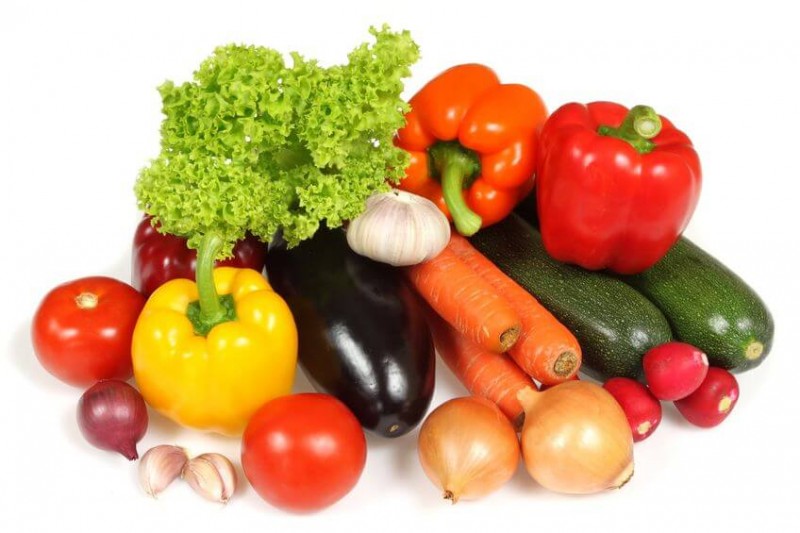How antioxidants protect against free radicals
As the festive season often brings with it a less-than-exemplary diet along with increased exposure to UV rays, there is a three-fold assault on your skin: sugary refined foods, late nights and UV rays are all major free-radical triggers. Free radicals are troublesome molecules that wreak havoc on our skin and health by damaging healthy cells.
Ever more research shows that eating a diet rich in antioxidants as opposed to popping antioxidant supplements may be the best way to protect the skin and body from these rogue molecules. Antioxidants have myriad skin benefits: they protect collagen from damage, are anti-inflammatory, protect blood vessels from damage and soak up UV damage, increasing your body’s own SPF factor. But antioxidants work synergistically with other nutrients found in food, not in isolation; you require a variety of nutrients consumed together to garner optimal skin and health benefits.
Free-radical production is to some extent a normal part of our bodies’ processes (we make them when we breathe, exercise etc) and our bodies also cleverly produces their own innate supply of antioxidants to counteract everyday free-radical production. However, increased stress levels, pollution and refined foods of the modern lifestyle also mean we need to assist our bodies by providing them with more of these protective compounds — even more so as we age and our own natural levels of antioxidants decrease.
Healthy foods provide us with an array of protective antioxidants that not only quench free radicals but can also increase our own supply of master antioxidants such as glutathione. By increasing your levels of broad-spectrum antioxidants during the holiday season, you can help stop these perpetrators of premature ageing from wreaking havoc.
While there is a range of antioxidant supplements on the market, new research shows that eating the whole food and a broad range of foods may be far better arsenal to combat a wide range of free radicals than merely popping an antioxidant pill. While we bag the term “free radicals” as one perceived entity, there are many types of radicals and research shows that each antioxidant targets specific radicals, not all.
By eating a variety of healthy whole foods, you receive the collective benefits of different antioxidants that help scavenge a variety of free radicals and therefore offer far better protective benefits. The term “antioxidants” is an umbrella for many beneficial varieties.
Carotenoids are a broad category of different types of protective phytochemicals (there are about 600 known carotenoids) found in the pigment of red, orange, green and yellow foods, from carotenes to lutein, lycopene and zeaxanthin. Polyphenols, another category of powerful antioxidants, include the flavonoids found in teas, fruit, wine, legumes, onions and nuts. Subgroups include anthocyanins found in the red pigment of grapes and berries and the catechins found in green tea.
Each antioxidant has its own unique benefits. Betacarotene, for example, is thought to be the best quencher of singlet oxygen (an energised but uncharged form of oxygen that is toxic to cells). In whole foods you find the gamut of antioxidants: vitamin antioxidants, antioxidant enzyme co-factors, antioxidant co-factors.
Vitamin antioxidants include A, C and E, phytochemicals and trace minerals such as zinc, selenium and manganese, found in a variety of whole foods; these minerals are also important as they form an essential part of antioxidant enzymes such as superoxide dismutase, catalase and glutathione peroxidase. They all bring their own unique benefits and target their own combination of radicals — and together form our primary defence against free radicals while helping to repair oxidised DNA.
No nutrient is an island. Vitamin C works synergistically with vitamin E to attack free radicals. Eating foods together also magnifies the antioxidant benefits. Recent research has shown that absorption of two key carotenoid antioxidants, lycopene and betacarotene, increases significantly when fresh avocado is added to salad. This is because they are oil-soluble antioxidants and avocados are rich in good oils such as oleic acid. One cup of fresh avocado added to a salad of lettuce, spinach and carrots was found to increase absorption of carotenoids by up to 400 per cent.
This is not to mention all the other hundreds of beneficial plant compounds that enhance health, such as glucosinolates found in cruciferous vegetables, which turn on enzymes that detoxify carcinogenic substances. As Dr Lui of Cornell University said in the 2004 December Journal of Nutrition , “It is now widely believed that the actions of the antioxidants alone do not explain the observed health benefits of diets rich in fruits and vegetables because, taken alone, the individual antioxidants studied n clinical trials do not appear to have consistent preventive effects.
“Work performed by our group and others has shown that fruit and vegetable phytochemical extracts exhibit strong antioxidant and anti-proliferative activities and that the major part of total antioxidant activity is from the combination of phytochemicals. The additive and synergistic effects of phytochemicals in fruits and vegetables are responsible for these potent antioxidant and anticancer activities and the benefit of a diet rich in fruits and vegetables is attributed to the complex mixture of phytochemicals present in whole foods.”
Eating a variety of foods together also indirectly increases our antioxidant levels. Late nights rob our bodies of melatonin, a very important antioxidant; a lack of melatonin is implicated in premature ageing of the skin. Foods rich in both vitamin B6 and tryptophan (or eating a mix of foods that contain both) are good precursors to the hormone serotonin, which is a precursor to melatonin.
To get even more out of your antioxidant-rich foods, ferment them. Fermentation not only makes nutrients more bioavailable but it also helps get rid of any of the negative impact of foods. For example, polyphenols, although offering myriad health benefits, contain anti-nutrients. Certain properties of these phytonutrients that help plants protect themselves from predators can interfere with the digestion and absorption of food. According to a study published in the 2002 issue of the Journal of Nutrition and Health, fermentation drastically reduced the compounds in food that interfere with digestion while keeping the antioxidant benefits intact.
And, while the more fashionable exotic superfoods are rich in a variety of antioxidants (you do find that foods grown in harsher areas of the world such as equatorial and arctic regions can be higher in a range of antioxidants), don’t forget the humble carrot or bean as they also offer profound skin and health benefits, especially when eaten together.








